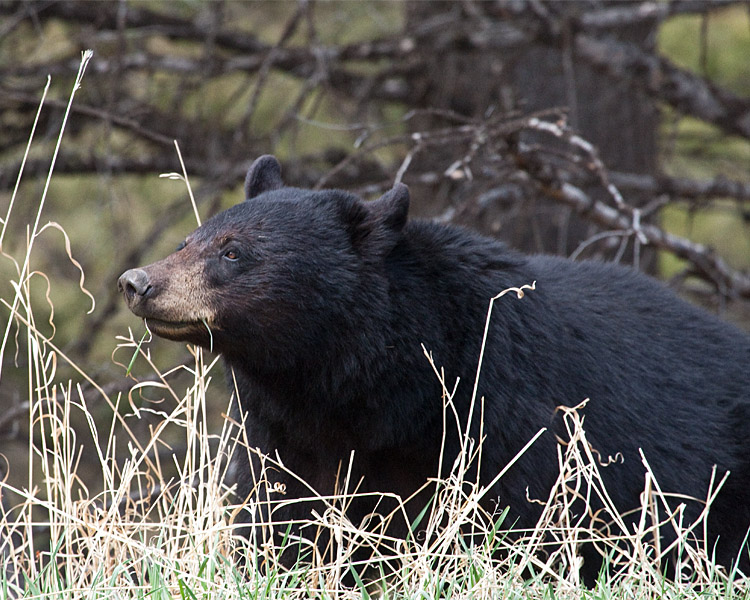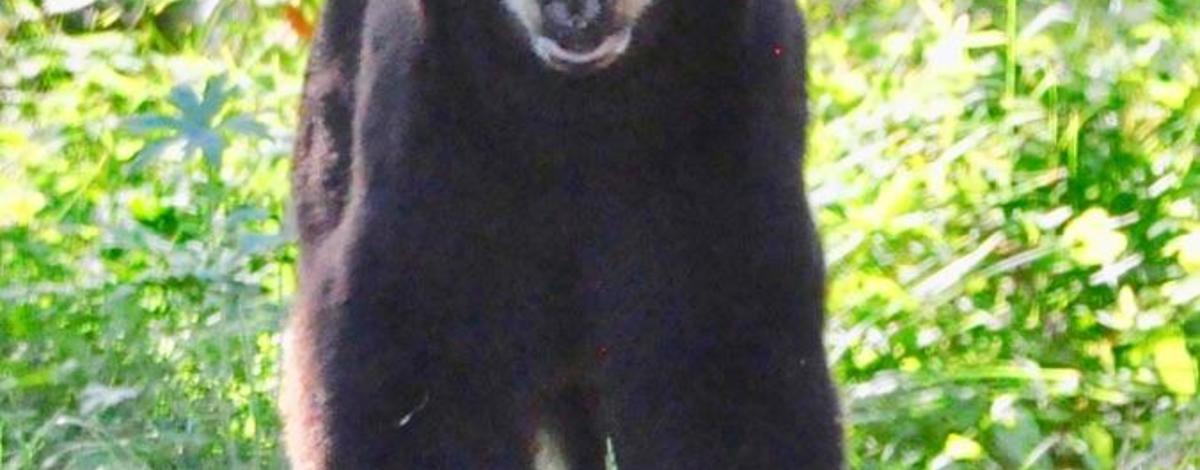During dry summers such as this, the black bear’s natural food supplies may be scarce, driving them to travel great distances to find food. Improperly stored human foods in campgrounds, backcountry camps, or rural residences become all too tempting for the hungry bruins. With that in mind, Fish and Game officials are urging outdoor recreationists and rural homeowners to be extra vigilant about storing their food to avoid attracting black bears.
"We’re seeing a shortage of natural bear foods, like berries, in many areas," Fish and Game district conservation officer Justin Williams said. "Likewise, we've seen an uptick in the number of bear sightings in campgrounds and other places where human foods are present.”
A cooler full of groceries left on a picnic table, unsecured garbage at a residence, dog or cat food left outside, low-hanging bird feeders, or food stored in a tent are attractive, easy marks for a hungry bear. Once a bear finds food near humans, it is likely to come back.
"We’re seeing a shortage of natural bear foods, like berries, in many areas,"
- District conservation officer Justin Williams
"Black bears are opportunists; their whole life revolves around food," Fish and Game wildlife manager Greg Painter said. "They remember every single location where they receive a food reward, and if they get one from your camp or residence, they will be back for more."
The situation can quickly deteriorate into an issue of human safety.
"Common sense in bear country is really all that's needed," Williams said. "Securing food, garbage, and anything else that a bear might consider food is the answer. If a bear does not receive a food reward, it will move on."
Homeowners, campers and hunters can help keep bears wild and avoid costly property damage themselves by taking some simple precautions:
Tips for campers:
Bears typically visit a campsite for one reason: food. If you remove that attraction, including garbage, dog food, greasy grills, and other attractants, you will rarely, if ever, see a bear in your camp. Campers should also keep food stored in containers to reduce odors, such as plastic bags, bins, and coolers. Store food where bears can’t easily get to it, like inside RVs or vehicles, but don’t bring food into tents. Clean up after cooking and properly dispose of waste. Keeping garbage in a covered container, such as a sealable 5-gallon bucket, can reduce odor from escaping.
If you see a bear in your camp, make a commotion, such as yelling, waving or banging pans. The more people the better, but give the bear plenty of space and make sure it has an easy escape route. If it acts aggressively, your safety is more important than your food or gear.
Backpackers who camp in the backcountry should consider hanging their food at least 10 feet off the ground and 4 feet away from tree trunks, or using bear-proof containers to store it in.
Report bear sightings at campgrounds to campground hosts or the land-management agency (Forest Service, BLM, etc.) or to Fish and Game, especially if the bear shows little or no fear of humans, and/or you have repeat visits.
Tips for homeowners:
Like campgrounds, bears typically visit houses or other outbuildings if there is food available. Being omnivores, bears are attracted to a wide variety of things, such as garbage, pet food, livestock feed, bird feeders, gardens, fruit trees, etc. Bears often ramp up their feeding in late summer and fall when they’re fattening up for winter hibernation. If a bear visits your property to feed, it’s likely to return, so remove the food as much as is practical, such as locking garbage cans in a garage, taking your pet food in at night, or picking fruit up off the ground and disposing of it away from the area.
Hikers, mountain bikers, equestrians and others
If you encounter a bear, give it space and try to move away, carefully, without taking your eyes off the bear. It will usually leave the area, and you probably should, too. Don’t run. That can trigger a bear to chase you. If you have bear spray, don’t hesitate to use it if the bear approaches, shows no fear, or acts in any way aggressively. Remember bear encounters can happen quickly, so bear spray needs to be accessible at all times, not stashed in a backpack, saddle bag, or other place where it can’t be quickly deployed.
For more in-depth information about black bears, visit the “Be Bear Aware” website (BeBearAware.com) for a variety of digital brochures. For more information on living with black bears, call the Salmon Region Fish and Game office at 208-756-2271.


